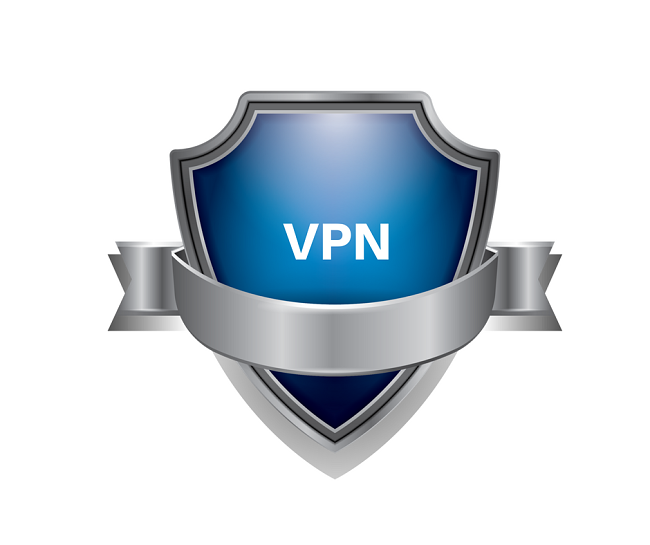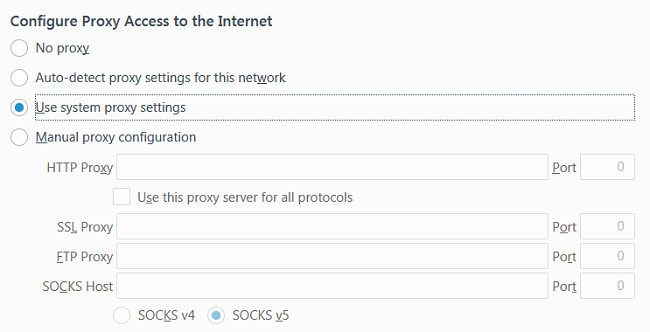Proxy or VPN: Which Online Security Tool is Best for You?
The general rule is that anything a proxy can do; a VPN can do better. That doesn’t mean that the right choice is ALWAYS a VPN (although 95% of the time it is), so it’s important to understand these two online security tools, and your needs, before making a decision.

- Online privacy
- Online security
- Stream geo blocked shows
- Torrenting
- Hide your IP address
- Change your virtual location
- Access content blocked in your location
- Bypass online censorship in countries like China and Russia
Both tools were designed with online security in mind and using them will help keep you anonymous online, but will they be able to fill the needs listed above?
If you’re already familiar with these tools, click here and and see why a VPN is the far superior tool (and no, it’s not just because we are a VPN site).
Otherwise read on as we take a deeper look into VPNs and Proxies and weigh the pros and cons when it comes to online security, streaming and more.
Get Protected Now with ExpressVPN
Editors’ Note: ExpressVPN and this site are in the same ownership group.
What is a VPN?
A VPN, or Virtual Private Network, will reroute your online activity from your ISPs servers to a remote server. Once you’re connected to the remote server you will receive a new IP address based on where the server is hosted regardless of your actual location.
There are hundreds of VPNs to choose from, some free and some require a paid subscription, the one thing they all have in common is you have to download the software in order to use them. Once connected, it will reroute all of your traffic, not just a specific apps through their secure tunnel. We should mention that there are some VPNs that do offer “split tunneling” which allows for some traffic to go through the ISP while only certain apps get the VPN servers.
However, this is not the default and it is up to you to decide when and if you want to activate it. The data leaving your device is encrypted so all of your browsing information and private data is kept secure, appearing that you are using a private network rather than your IP address and location.
Using a VPN offers massive benefits when considering security as it reduces the chances of your online activity being traced, your passwords and other sensitive information being hacked, and various other security threats.
Will a VPN Fulfill Your Needs?

In the scenario where a hacker attempts to access your data, the encryption in place will guarantee that the information they obtain is rendered useless. If your aim is to prioritize online security and privacy, then opting for a VPN that incorporates robust encryption and a variety of security protocols such as OpenVPN and SSTP will be necessary.
In general, we don’t recommend free VPNs because they have limited services (so that you upgrade to the premium plans) or sell your data to marketers for a profit.
Another benefit of encrypting your data is that your ISP (internet service provider) can’t see what you are doing online.
This is beneficial for several reasons.
- ISP’s are known to throttle speeds for users on data heavy websites.
- It anonymizes your online activity.
- You can torrent without fear of your ISP handing over your information to the government
Not all VPNs are created equal, some are better than others when it comes to specific needs. Once you know why you want a VPN you’ll have an easier time finding the right one for you. The best overall VPNs will check off most, if not all, those needs.
For example, if you want to bypass the Great Firewall of China, you will need to make sure that the VPN you have hasn’t been detected by the Chinese government.
The same is true with watching Netflix, Hulu, BBC iPlayer or any other website that is restricted to users based on their location. Reading VPN reviews will generally give you all this information, and allow you to get the best VPN for your needs.
If you are looking for one VPN that can accomplish everything on the list above, we recommend purchasing ExpressVPN.
That’s not say that everything is perfect with a VPN, like everything else, it does have some drawbacks.
Namely, pricing.
If you want a reliable and secure VPN that can do what you need, you will need to pay for it. Most VPNs will offer a price reduction if you purchase a subscription package longer than a month. You can also find VPN coupons throughout the year that can save you some serious cash.
Editors’ Note: ExpressVPN and this site are in the same ownership group.
What is a Proxy?
A proxy is a privacy tool that can hide your IP address and make it appear like you’re in another location. Unlike a VPN, there is no software to download and you are only connecting for a specific app, not your entire network.
When using a proxy with your internet browser, you can set your internet to go to independent servers first, allowing your IP address to be hidden. This gives you anonymity while browsing or streaming on the internet. It also masks your location, so if you want to access sites that are blocked in your country, a proxy is a way around that. However, there are no online security measures, such as encryption of security protocols like OpenVPN.
The main use for a proxy is to sidestep filters, such as geo location blocks, or blocks placed on certain websites by schools, libraries, or universities. For example, if a library has blocked access to a social media site, you can use a proxy to access the site you want.
There are many different kinds of proxies. The most common are:
- Anonymous Proxy
This is your standard proxy that is freely available on the internet. It will not only hide your IP address, but you will also be able to sidestep cookies and remarketing campaigns. However, it also doesn’t hide the fact that the IP address is connected to a proxy. There are significant drawbacks with this kind of proxy that include security risks and very slow speeds. - High Anonymity Proxy
This will not only hide your IP address, but will also hide the fact that it’s a proxy. The chances of accessing geo-blocked content is higher when using the high anonymity option. - SOCKS5 Server
This proxy server is on a higher level the anonymous and high anonymous servers, based on how it manages your online traffic. It can be used when browsing in China and for anonymous torrenting. Unlike the other proxies, it is not a free.
Will a Proxy Fulfill Your Needs?
A proxy gives you basic protection when it comes to your privacy. Due to all of your web data being sent to a proxy server first and then sending you to the desired website, you can keep your IP address and location concealed as the website will only see the proxy server’s address. This gives you protection against external surveillance, but you need to bear in mind that the proxy server owner can access your data and typically will store logs.
A proxy also helps to limit the amount of advertising you receive as your IP address is hidden. If you are concerned about advertising, you need to ensure you select the correct proxy, as some proxies place their own ads on the sites that you visit by blocking other ads and replacing them with their own.

Based on the proxy server’s location, certain content will be restricted and other content will not be. If you cannot view a website in England, but the proxy server is located in Australia, you may be able to gain access to the site. This may work for some users, but you may also find it frustrating if you need to access sites from various regions, so you may need to reset your settings each time you need to access a geo-blocked site so you can access an appropriate server.
Using a proxy is a simple, lightweight security option for users who are looking for a temporary solution based on their location or if they are using a restricted system. When you use a proxy, it is vital that you find a legitimate, trustworthy proxy server. Always keep in mind that while you are receiving anonymity, the proxy server owner is unknown to you too. Plus, as proxies are usually free, their security is typically lacking and your privacy and anonymity may not be ensured.
VPN vs Proxy: The Answer Should Be Obvious Now
This comes off looking like a David vs Goliath battle, except in this case, Goliath wins hands down.
A VPN fulfills all of the same functions as a proxy, but it also has many more other features that boast more reliability, security, and safety. If you are looking for a long-term solution to protect your data and security, a VPN is absolutely your best choice.
The only time a proxy would be a better choice than a VPN is if you just need to quickly bypass a firewall and check something out. For example, if you’re at work or school and want to check your Facebook but the firewall blocks social media sites a proxy will get the job done.
When contemplating a paid web proxy solution, like the SOCKS5 protocol, you may discover that you’ll be spending a similar amount or even more when compared to a VPN. Nevertheless, it’s important to note that the benefits you’ll gain are only a small portion of what a VPN can provide.
If you’re looking for online security, anonymity, speed, torrenting, streaming, or bypassing censorship then you’re much better off using a VPN.
Take our word for it, you’ll be much better off in the long run spending a few bucks a month and enjoying all the benefits that come with a VPN instead of trying to find a working proxy server every time you need something.



